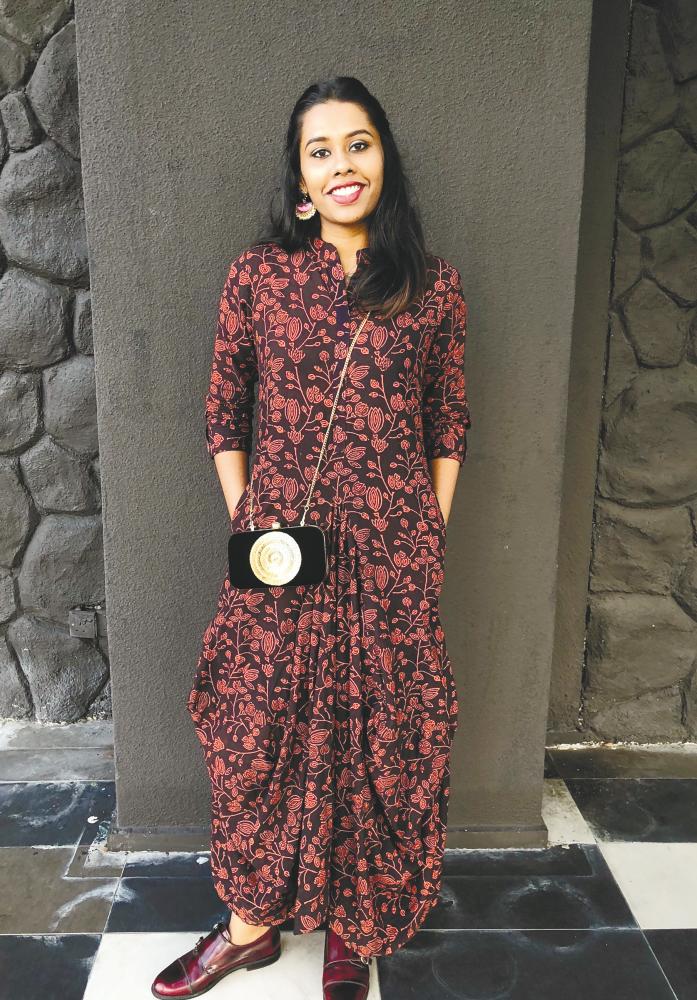MANY businesses have been badly impacted by the Covid-19 pandemic, including fashion designer Visha Devan’s label Trihamsa.
“All my staff don’t get to work, so I feel really bad because I am trying to do what I can. We do ready-to-wear [for weddings] but a lot of weddings are not happening.
“I was thinking of focusing on online sales, but I am not sure how people will respond to it because of the state that we are in, but I might still give it a try.”
Visha graduated with a degree in Fashion & Retail Design, and decided to create her own clothing brand in May 2015.
“I used to travel a lot to India and other countries, and what I noticed is that Indian fabrics have been used or produced in a very different way, like how they use traditional prints on a modern silhouette. I realised that people do appreciate these things.
“Back then, it wasn’t that common here in Kuala Lumpur. So in 2015, I started really small because I was financing myself.”
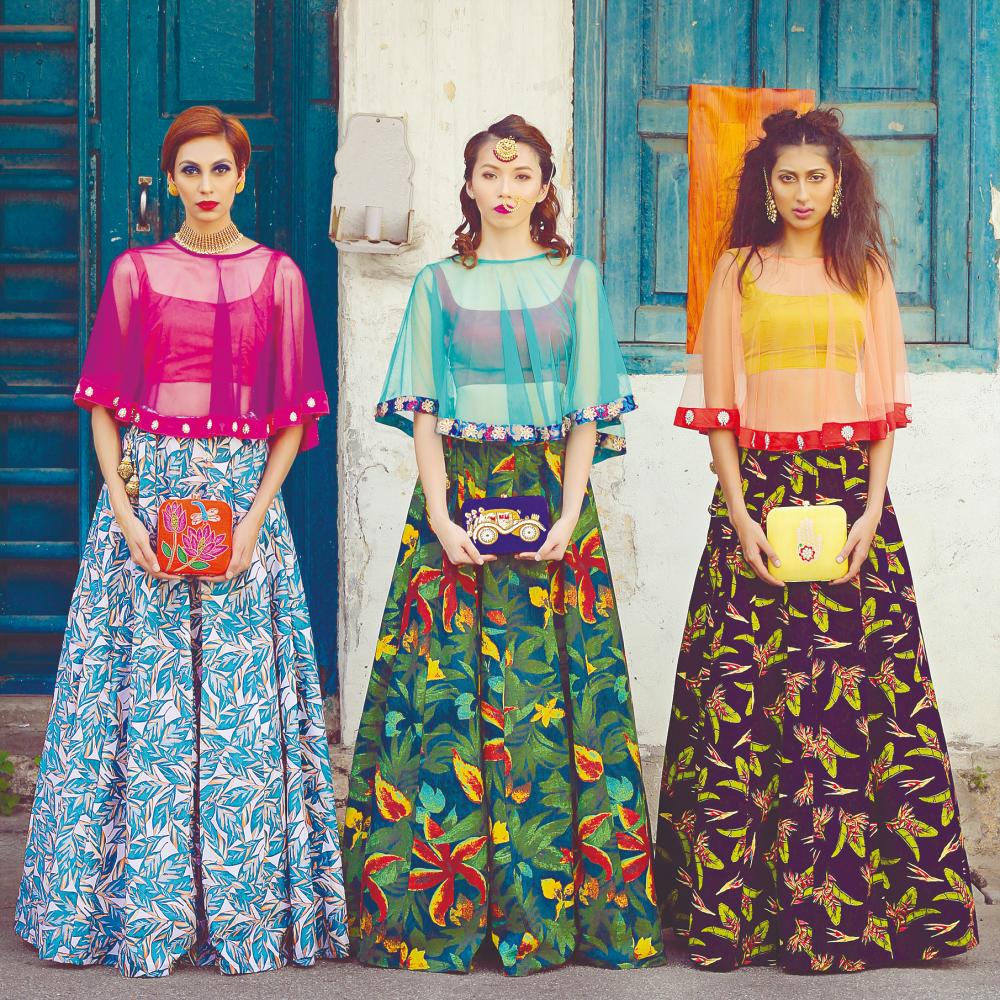
The name Trihamsa was carefully thought out by the designer herself. Visha explains: “I believe in the universal law, and how a certain word will bring a certain magic touch to something. The word ‘Tri’ is from the word trishula, it is like a trident. ‘Hamsa’ is depicted from the Hand of Fatima, the palm of healing. So, I combined these two words together.”
As for her designs, she explained: “I have two ranges, one is for weddings and festive seasons, while the other caters to non-Indian and expat clients, who love colour and prints.
“When I started, my vision was completely different. I wanted it to be ready-to-wear but along the way, I felt like I drifted [to] festive wear, because that is where the market is, in the Indian scene. There were a lot of clients that don’t want to get commercialised pieces, instead they wanted it customised.”
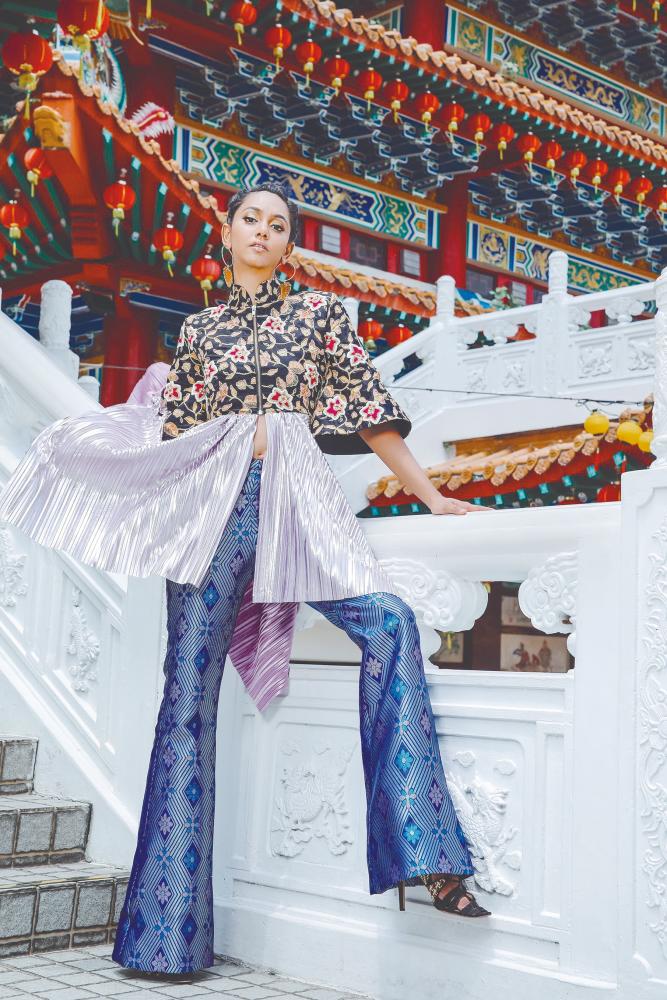
Visha shared the process of creating an outfit for her clients from scratch.
“If it was made-to-order, the client comes in and tells me: ‘I am going to this particular event, and this is what I have in mind. I would like to work with these colours.’ So, we usually come up with the sketch after the initial consultation.
“Then, the next time we would present pieces of fabrics, and once they make up their mind, we will proceed with purchasing the fabric and get started. I’ve got a team of four, and there is a lot of teamwork required.
“I source my materials from all over India and I go there once in three months, usually. For my wedding clients, some of them have very specific requirements. I try to get the materials, like the tiny delicate beads for the embroidery.”
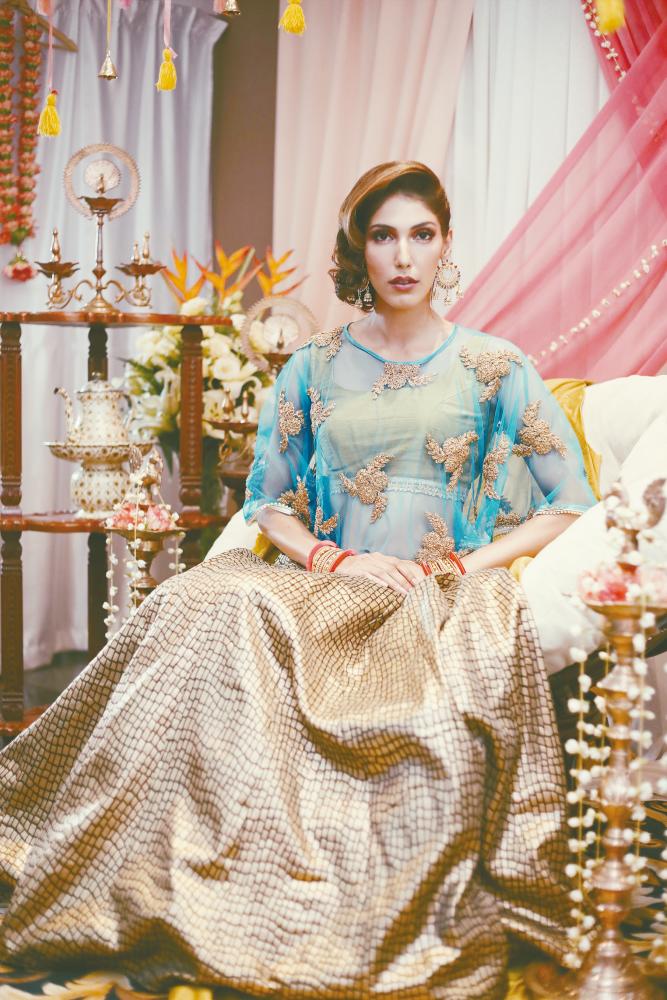
The 29-year-old designer also gave her two cents on the local fashion scene.
“Honestly, I do feel that we (Malaysians) try to imitate the international feel and vibe, but forget who our target audience is, because we have three big racial groups living here in Malaysia. What we show should be practical.
“I went to a local fashion show weeks before, and it feels like a whole different world. It’s beautiful and it’s nice, but I can’t relate. We don’t live that kind of lifestyle.
“The first three days of some fashion week, for instance, is for homegrown brands, and then suddenly you see some mat salleh walking down the runway, like, where did you come from? You know what I mean?”
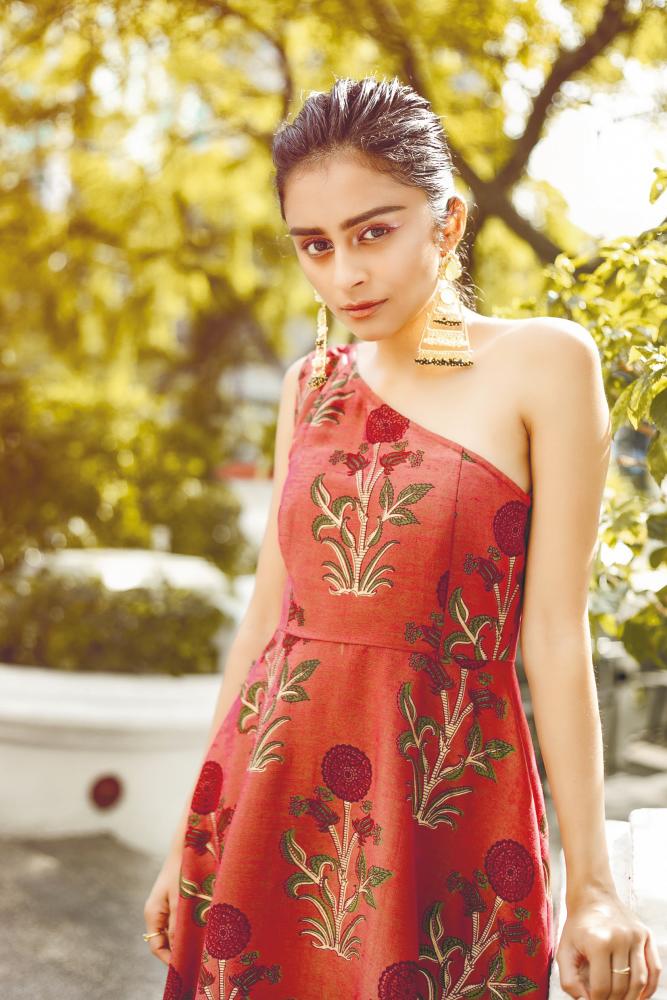
Visha chooses to rely on herself to pursue the career path that makes her the happiest.
“I took it as a challenge, so whatever happens to the business, it is mine to deal with. I’ve never gone to my parents and said: ‘Oh no, I am having a rainy day, are you guys able to help me out?’
“Especially doing a business, you can’t just wake up one morning and say: ‘I don’t want to go to work.’ You have to wake up and say: ‘Look, this is yours, and today might not be the best day but we are going to figure it out.’
“It gives me some kind of happiness, and the customers’ feedback is what I appreciate.
“I make something for them, which takes hours and hours, and when [the] end product comes to life, I can see that they are happy with my work.”



